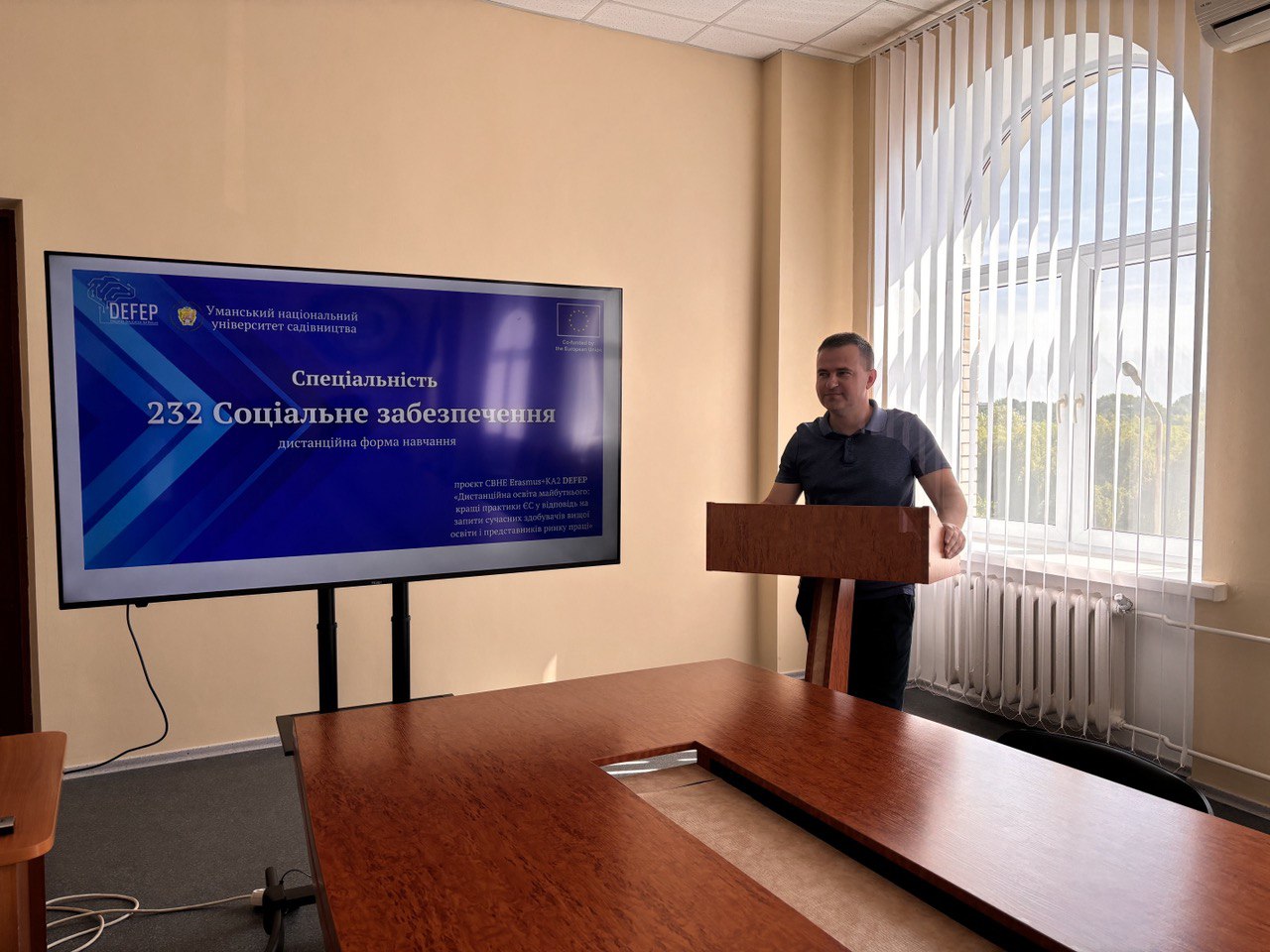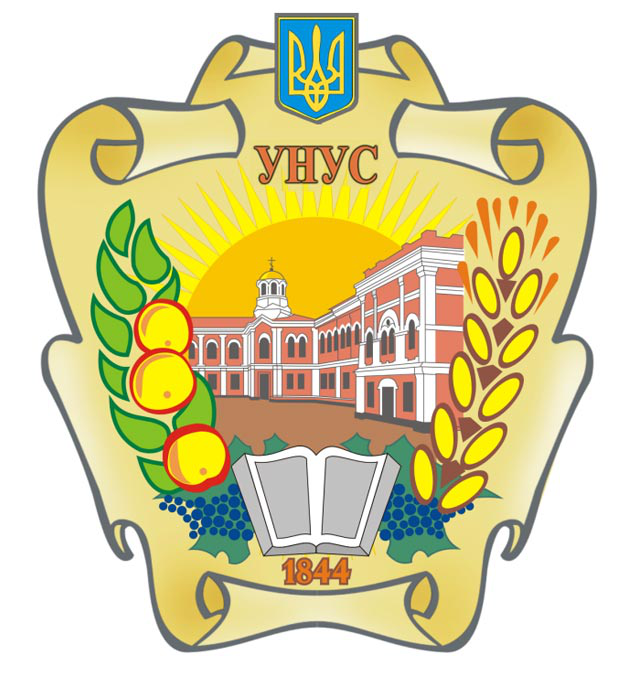
UNUS expands distance education opportunities with a master’s program in social security economics
Within the framework of the international Erasmus+ KA2 – DEFEP project “Distance Education of the Future: EU best practices in response to the needs of modern higher education and labor market students”, Uman National University of Horticulture (UNUH) is launching a distance learning program in Social Security Economics at the second (master’s) level of higher education.
Recently, a presentation of this educational program took place, which attracted the attention of applicants studying at the first (bachelor’s) level of higher education.
Mykhailo Malyovanyi, Vice-Rector for Scientific and Pedagogical Work, DEFEP Project Coordinator, emphasized the importance of adapting Uman National University of Horticulture to the modern challenges of the educational process and the benefits of distance learning. According to him, the distance format allows for a flexible approach to the educational process and ensures high quality education.
Inna CHERNEGA, PhD in Economics, Professor, spoke in detail about the educational program, its structure, core disciplines and requirements for masters. She emphasized the modern approach to the study of social security economics, which includes the analysis of modern models and practices, in particular in the context of market changes and social policy.
“This master’s program is a unique opportunity for students to gain a deeper understanding of the dynamics and challenges in the field of social security. It opens up broad prospects for career growth in the field of social economics,” noted Inna Ivanivna. UNUS continues to set ambitious goals in the development of educational programs, providing students with all the necessary resources and knowledge for successful professional activities.


